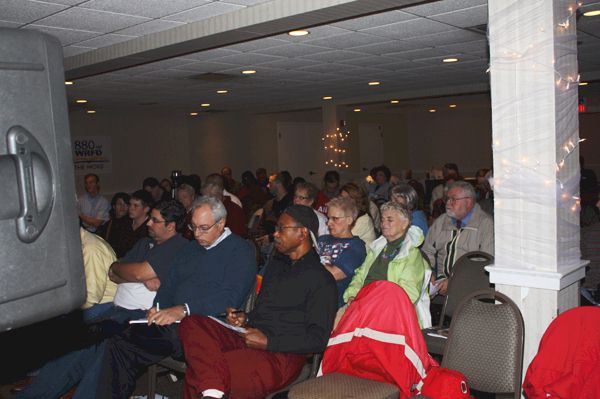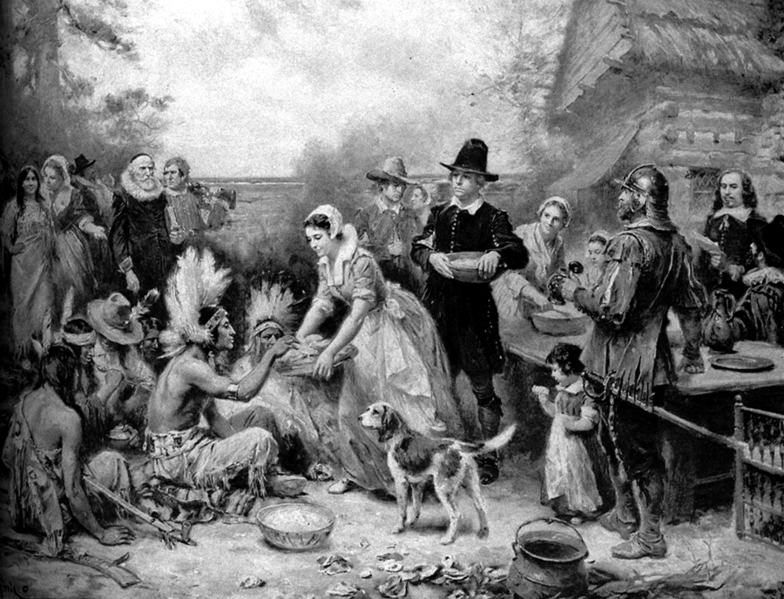April 27, 2010
By Tom DeWeese
 In December, 2008, my American Policy Center (APC) led a fight to stop Ohio from becoming the 33rd state to call for a Constitutional Convention (Con Con) (The Institute For Principled Policy was the first to discover the joint resolution calling for the Con Con and alerted other allied groups including APC- ed). In the 1980’s 32 other states had passed Con Con resolutions for the specific purpose of passing a balanced budget amendment. Had that resolution passed the Ohio legislature, we would have been just one state away from such an event. We argued then that one cannot call a Con Con to discuss just one issue. Once a Con Con is in place, there is no controlling the agenda.
In December, 2008, my American Policy Center (APC) led a fight to stop Ohio from becoming the 33rd state to call for a Constitutional Convention (Con Con) (The Institute For Principled Policy was the first to discover the joint resolution calling for the Con Con and alerted other allied groups including APC- ed). In the 1980’s 32 other states had passed Con Con resolutions for the specific purpose of passing a balanced budget amendment. Had that resolution passed the Ohio legislature, we would have been just one state away from such an event. We argued then that one cannot call a Con Con to discuss just one issue. Once a Con Con is in place, there is no controlling the agenda.
We fought to stop the Con Con because of fear. Today there is massive ignorance among the American people about the Constitution. Worse, there are powerful forces who consider that document to be antiquated and a hindrance to their vision of an all powerful government. These things, and more, make today the worst possible time in our nation’s history to mess with the greatest governing document of all time.
We stopped the effort in 2008, but the battle is on again as an even more determined plan is under way to gather support from the nation’s governors and state legislatures to pass Con Con resolutions. Again, this is not the work of wild-eyed leftists intending to gut the Bill of Rights. This is an effort by conservative legislators who are alarmed by the growing power of government.
The new plan making its rounds in state capitals is much more ambitious than the 2008 Ohio resolution to simply discuss a balanced budget. Now an entire package of ten amendments to the Constitution is being proposed and promoted to state legislatures through a powerful and well funded campaign.
The main groups pushing for a Con Con are the American Legislative Exchange Council (ALEC), a conservative association of state legislators; and a new group calling itself the 10 Amendments for Freedom, Inc, chaired by William Fruth, President of POLICOM Corporation, which provides independent economics research
While ALEC is working behind the scenes to build support for a Con Con among state legislators, Fruth and his 10 Amendments for Freedom group has moved into the public eye to sell the Con Con idea to mainstream America. In March, Fruth kicked off his campaign by mailing out a slick, expensive package to conservative leaders and to over 7,000 state legislators. The package contained a book written by Fruth entitled “10 Amendments for Freedom.â€
In the book, Fruth lays out an argument for the need for, not just a balanced budget amendment, but a total package of 10 Amendments to the Constitution including, the balanced budget; repay the national debt in 50 years; government transparency; line item veto; term limits for Congress; control illegal immigration; English-speaking nation; no foreign law shall bind us; government restraint (preventing the Federal Government from growth beyond constitutional powers; and finally, an amendment declaring “in God we trust.†Of course, there is no doubt that these amendments have great appeal for most conservatives, answering their growing frustration and fear of government expansion.
Arguing that Congress “will not likely take any action to cause the 10 Amendments for Freedom to become law of the land,†Fruth calls for all ten amendments to be packaged by state legislatures to be passed in a resolution calling for a Constitutional Convention. His package would include specific instructions to Congress as to how the delegates would be selected and outlining rules that would be enforced to assure only the ten amendments would be voted on.
Arguing the advantages of the Con Con, Fruth says, “Can you imagine the excitement in the nation leading up to the Convention? Schools will have to dust off history books which teach how our nation was founded. Many people for the first time will read the Constitution. The issue will be discussed at length, exposing what happened to our country over the years.â€
Fruth then scoffs at our fears of a Con Con and efforts to stop it. He says, “Simply, it is not reasonable to assume there can be enough delegates sent to a convention who will propose amendments which ‘repeal the Bill of Rights’ or ‘legalize socialism.’ Even if they did, the amendments would never be ratified,†concludes Fruth.
Anticipating opposition to his scheme for a Con Con, Fruth says that those who opposed the effort in the 1980’s, to call for a Con Con for a balanced budget amendment, told the American people that the delegates at the convention can “change the Constitution any way they want.†Argues Fruth, “We know that is not true.â€Â He says, “it is both irresponsible and disingenuous for anyone to publicly say that the convention can change the Constitution.†And he says, “any recommended changes must be approved by three-fourths of the states.â€
These are the arguments now being presented to every single state legislator and Governor in the nation as Fruth and ALEC put on a full-court-press to call for a Constitutional Convention. While the intention may be an honest desire to reign in the power of government, the fact remains that every one of these arguments for a Con Con is wrong.
The fact is, once 34 states petition Congress to convene a Constitutional Convention, the matter is completely out of the States’ hands. There is absolutely no ability to control what the delegates do in the convention. Attempting to instruct delegates to discuss only a specific issue like a balanced budget – or the whole package offered by the 10 Amendments for Freedom group — is absolutely impossible. Instead, once the convention starts, the delegates become super delegates which can take any action they desire concerning the Constitution. In short, at the convention the Constitution can be literally put on an operating table and the delegates can take a “scalpel†(pen) to it and change any section or even the entire document if they desire.
What proof do I offer? Here are the exact words of Article V of the Constitution: “…on the application of the Legislatures of two thirds of the several States, (Congress) shall call a Convention for proposing Amendments, which…shall be valid to all Intents and Purposes, when ratified by the Legislatures of three fourths of the several States.â€
Article V gives absolutely no guidelines as to how it will be run, how delegates can be selected and who can do the selecting. Once the 34 states make the request, the entire matter is in the hands of Congress to decide. It does not matter if the states passed resolutions as Fruth proposes, containing absolute guidelines for delegate selection. The Constitution provides no rules – it is up to Congress to decide how delegates are selected and what qualifications they will have. The guidelines proposed by Fruth carry absolutely no weight in the final process – even if every state passes the exact same resolution including those rules. Again, Article V simply says that when 34 states have called for a Con Con the Congress “shall call a Convention…†Period.
And there is more legal proof in support of the argument that delegates are not bound by any instructions or resolutions from the states.
First, of course, is the famous letter written by former Supreme Court Justice Warren Burger to Phyllis Schlafly, President of Eagle Forum. In the letter Burger writes, “…there is no effective way to limit or muzzle the actions of a Constitutional Convention. The convention could make its own rules and set its own agenda. Congress might try to limit the convention to one amendment or to one issue, but there is no way to assure that the convention would obey. After a convention is convened, it will be too late to stop the convention if we don’t like its agenda. The meeting in 1787 ignored the limit placed by the confederated Congress…â€
And there is more legal documentation proving that Congress or the states can control the agenda of a Con Con. Corpus Jurus Secundum is a compilation of State Supreme Court findings. The following is the collection of findings regarding the unlimited power of the delegates attending a Con Con. (From Corpus Jurus Secundum 16 C.J.S. 9) “The members of a Constitutional Convention are the direct representatives of the people (1) and, as such, they may exercise all sovereign powers that are vesting in the people of the state. (2) They derive their powers, not from the legislature, but from the people: (3) And, hence, their power may not in any respect be limited or restrained by the legislature. Under this view, it is a Legislative Body of the Highest Order (4) and may not only frame, but may also enact and promulgate, Constitution. (5)†The footnote numbers after the citation quoted reference the particular cases from which the citations were made. (1) Mississippi (1892) Sproule v Fredericks (11 So. 472); (2) Iowa (1883) Koehler v Hill (14N.W. 738); (3) West Virginia (1873) Loomis v Jackson (6 W. Va. 613); (4) Oklahoma (1907) Frantz v Autry (91 p. 193); (5) Texas (1912) Cox v Robison (150 S.W. 1149).
Clearly, the position put forth by Fruth, and ALEC, that state legislatures can pass a resolution dictating the rules of the Con Con is simply wrong.
Delegate selection is another dangerous trap waiting to spring. Again, Article V provides no guidelines. The process is left for Congress to decide. That means the current Congress could control the entire delegate selection. Under the rules that Congress could set, States may not even be represented. If the states are allowed to choose delegates, then what would be the method? Again, Congress will decide. Will the governor or the state legislature appoint delegates? Or could it be a bicameral panel or blue ribbon commission?
Or could it be a plebiscite – a vote of the people? If so, then who would be eligible to vote? Would it be all eligible voters? Or taxpayers only? Or would we possibly, in the interest of “enfranchisement,†allow all citizens, and potentially foreign nationals (illegal immigrants) to vote for this “special election?†There are no guidelines and anything is possible.
And what would be the qualifications to be a delegate? Would it be exclusively lawyers? A mix of professionals? So-called “proportional representation†of all special interest groups – NGO’s? Will some be excluded because of “extreme†convictions? Of course, according to the Federal Department of Homeland Security, “extreme convictions†includes those who want to protect the Constitution. So, what will the criteria for eligible delegates be? All of these choices would be made by Congress – that same one now controlled by Nancy Pelosi and Harry Reid.
But again, none of that will matter, according to those calling for the Con Con. William Fruth argues that no matter what such a convention does, it still must be ratified by two-thirds of the states, making it very difficult to do bad things against the will of the people. A history lesson is in order.
There has been only one Constitutional Convention in the history of the nation – that was in 1787. At the time, the nation was held together by the Articles of Confederation. The states were having a difficult time performing commerce among themselves. So it was decided to hold a Constitutional Convention to simply discuss how interstate commerce might be better organized. As the delegates were selected, some delegations were given specific orders by their states to discuss nothing else beyond the commerce issue.
However, as soon as the delegates arrived at Independence Hall in Philadelphia, they closed and locked the door, pulled down the shades and met in secret for a month. When they were finished, they had created an entirely new nation. We were very lucky that the convention was attended by men like Ben Franklin and James Madison. They produced the most magnificent document ever devised for the governance of man.
Today, we have Nancy Pelosi and Harry Reid. These are the people who will decide the rules for the convention, including delegate selection. Keep in mind, these are the people who just managed to ram through a health “reform†bill that the overwhelming majority of Americans opposed. These are the same people who managed to pass the bailout package opposed (according to polls) by almost 80% of the American people.
Do you trust them to follow the rules dictated by state legislatures? Do you think Pelosi and Reid would pass up an opportunity to set their own rules to guarantee a Constitution to their liking? Do you think for one minute that they would take any steps to protect our Constitution? We live in an era when the Supreme Court looks to foreign laws to assure our own laws are worthy. We live in an era when many believe that the Constitution is out of date for our times. Barack Obama has expressed his belief that the U.S. Constitution needs to be interpreted through the lens of current events. Pelosi and her cohorts are itching to get their hands on the old parchment. And as history has shown, once a Con Con is called, delegates (picked though a Pelosi process) can do anything they want to it, including writing a completely new document.
And there is more. Concerning the argument that no matter what the delegates produce, the states still must ratify it – thus serving as a safeguard to tomfoolery, consider this fact: The Articles of Confederation required that any changes be ratified by 100% of the states. That was the document that was the law of the land – until something else was put into place. But, when the new Constitution was put to the states for a vote of ratification, suddenly they needed only two-thirds to approve it. Why? The fact is, Article V of the new Constitution was used – even before the Constitution which contained it was approved. Now, what do you think Reid and Pelosi and company would do with that precedent? What if the new document produced by the Con Con said ratification only required a vote of Congress – or some special commission? The precedent of 1787 says that could happen. So much for protection by the states.
And rather than an excitement in the nation with a rebirth of study of the Constitution, as Furth envisions, there would in fact be a long, hard, ugly and expensive battle over the process, guaranteed to leave the nation split along ideological lines. It’s not difficult to envision civil unrest, riots or even civil war as a result of any re-writing of the current Constitution.
These are the reasons why I, and many others around the nation, adamantly oppose a Constitutional Convention at this time. We fear a Con Con because the subject matter cannot be controlled. And if the worst happens, there is no guarantee that we can stop ratification. There has never been a worse time in the nation’s history to consider changing this grand document. The Con Con delegates could literally put the Constitution on an operating table and use their scalpels to slice it up, creating an entirely new form of government. That new document, as precedence has shown, could be enforced without ratification by the states. Remember, our current Constitution was not ratified by the rules set forth in the Articles of Confederation, but by an Article V that wasn’t yet law of the land. Now that the precedence is there, it can happen again. The Pelosi’s of the nation, proven to have the power and the will to twist any issue or initiative as they desire, are rubbing their hands together at the prospect of a Con Con.
No doubt there is great need for several of the amendments Fruth and his group propose. But he seems to ignore the fact that there is a powerful, organized opposition. Again, I call your attention to the continuing battle over health care. That’s child’s play compared to what will happen in a Con Con. Do Americans really want to risk that in these uncertain times? Every freedom-loving American must stand up against this misguided call for a Con Con. Tell your state legislators NO.
Reprinted by permission of Tom DeWeese
Tom DeWeese is the President of the American Policy Center and the Editor of The DeWeese Report. The DeWeese Report is now available online, for more information click here.









 Most grassroots movements have the same fundamental parts to them, with the tea party movement being a notable exception. Understanding those parts will help activists and candidates to generate and sustain momentum and support for your issue.
Most grassroots movements have the same fundamental parts to them, with the tea party movement being a notable exception. Understanding those parts will help activists and candidates to generate and sustain momentum and support for your issue.